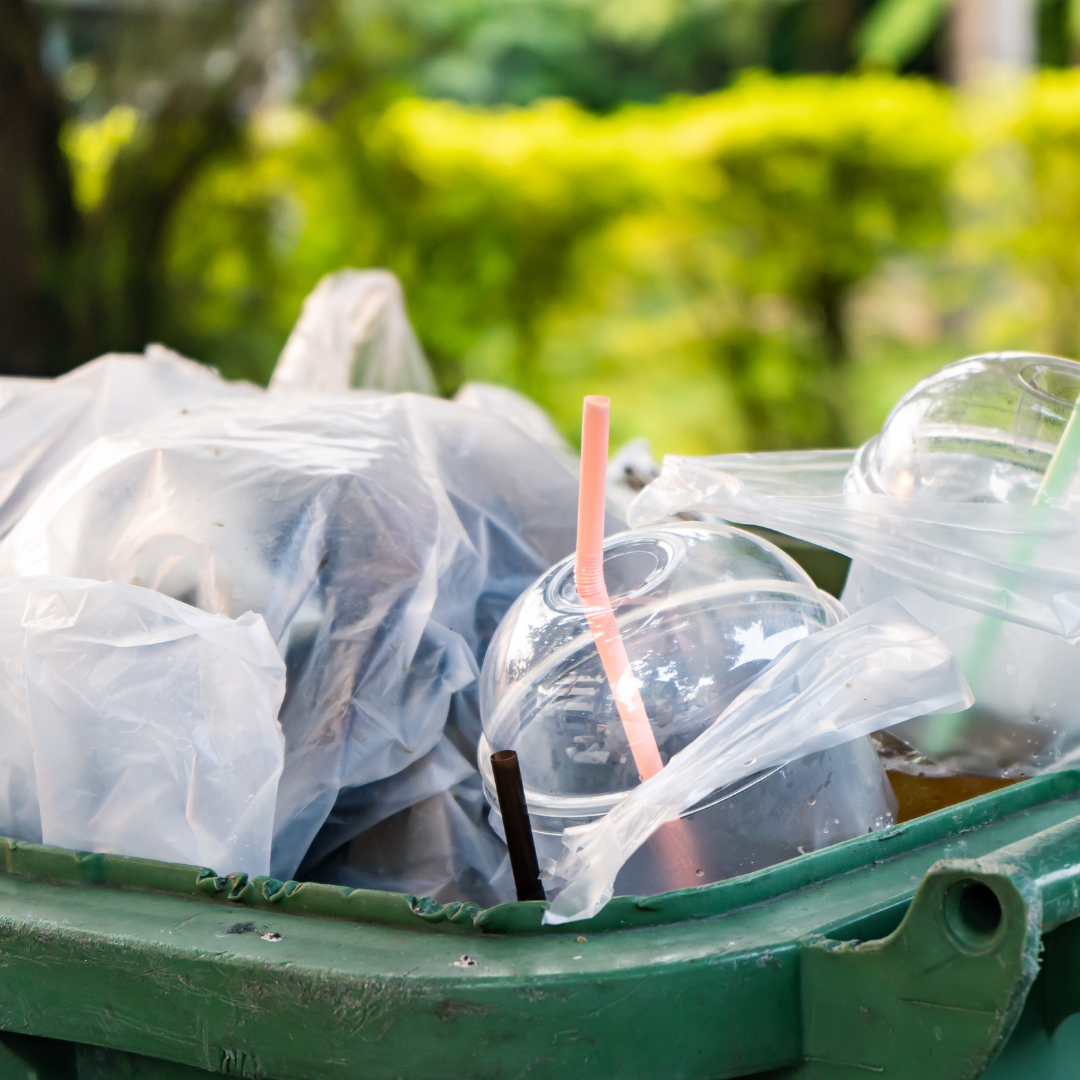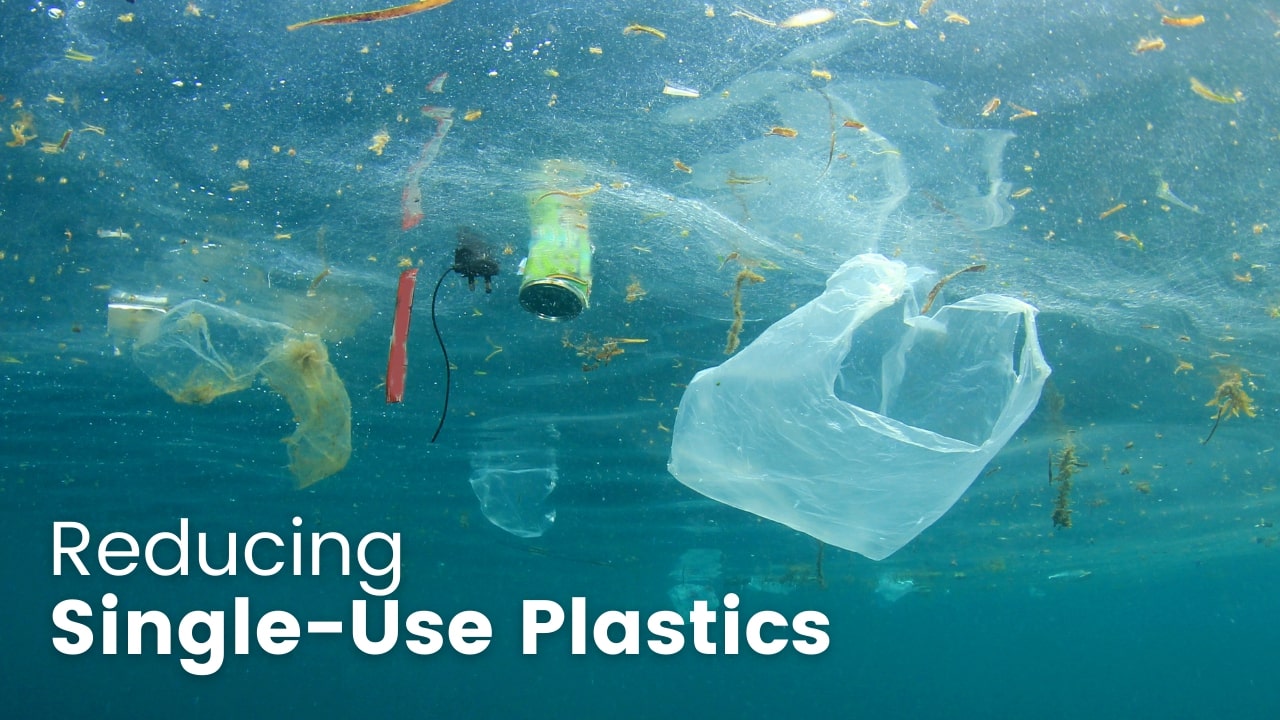Single-use plastics are plastic items that are used only once and then thrown away. Some examples are plastic snack bags, plastic grocery bags, plastic straws, and plastic bottles.


Macie Allen is an Ambassador Girl Scout from Southern California. She is earning her Gold Award and advocating for reducing the use of plastic in order to minimize its negative impact on the environment.
What are single-use plastics?
Single-use plastics are plastic items that are used only once and then thrown away. Some examples are plastic snack bags, plastic grocery bags, plastic straws, and plastic bottles.
Why are single-use plastics an issue?
Single-use plastics harm the environment because so many end up in the ocean. Instead of breaking down into organic materials like paper does, plastic breaks down into smaller pieces called microplastics, which end up polluting the environment. Depending on the type of plastic, it can take 20 to 500 years to decompose! As plastic decomposes it can release toxic chemicals and contaminate the nearby soil and organisms. Using less single-use plastic throughout everyday life would reduce the amount of plastic damaging the earth because less microplastics would be contaminating the environment with harmful chemicals and being ingested by marine organisms.
How do single-use plastics affect the human body?
As microplastics are floating around in the ocean, fish consume them, thinking they are food. Fish is a significant part of the diet of many people. If our food is eating microplastics, we are eating microplastics by eating that food. Additionally, microplastics are small and light and therefore easily airborne. Many household objects like clothing, plastic bottles, and plastic bags release tiny plastic particles into the air, which humans inhale. Inhaling airborne microplastics can cause health complications including airway diseases, interstitial lung disease, birth defects, and cancer.
How do single-use plastics end up in oceans around the world?
Ocean gyres are circular ocean currents that move slowly and carry debris with them. Plastic trash in the ocean is carried across the world through gyres and can build up in certain spots. For example, the Great Pacific Garbage Patch is located in the North Pacific Gyre. Trash discarded around the Pacific Rim from countries in Asia, North America, and South America is carried through the North Pacific Gyre to the Eastern and Western Garbage Patches in the Pacific Ocean.
How my Gold Award is helping and how you can help too
In order to help reduce the amount of single-use plastics polluting and damaging the ocean, my Gold Award is a project that educates people about the negative effects of single-use plastics on the environment. I will be holding seven workshops throughout the next few months educating younger Girl Scouts about how single-use plastics pollute the ocean. Learning about the detrimental effect of plastic on oceans, the environment, and humans is a great way to combat the issue.
Not only is awareness important to preserving the world’s oceans from plastic pollution, but tangibly reducing our consumption of single-use plastics also has a significant impact. Kids use plastic snack bags to hold their lunches at school every day. Adults who go grocery shopping use plastic bags to carry their groceries, but these are not sustainable options. Giving a reusable bag to a person helps reduce their output of single-use plastics because they will use the reusable bag over and over again. Each time someone uses a reusable bag, they are using one less single-use plastic bag. More importantly, they are allowing one less piece of plastic trash to pollute and damage the ocean. Microplastics have negative effects on organisms that mistake them for food because they contain toxic chemicals. Using sustainable alternatives to plastic products is important to protect marine life.
There are so many ways to reduce your consumption of single-use plastic products in everyday life. Be sure to share in the comments with Athens on Instagram and Facebook the ways you are reducing your consumption of single-use plastics!
Copyright (C) 2026 Athens Services. All Rights Reserved.